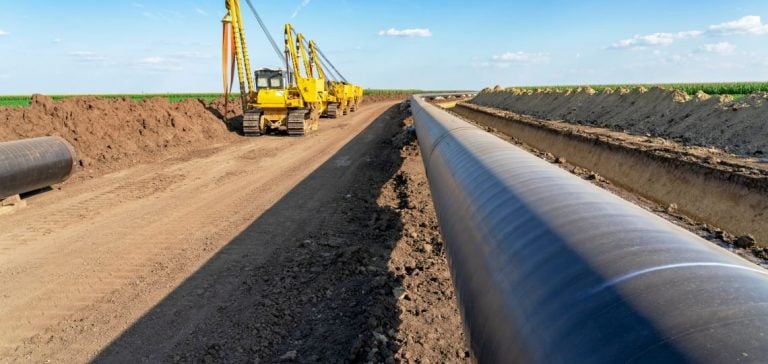The Matterhorn Express pipeline, recently commissioned in September 2024, represents a significant advancement in natural gas transportation infrastructure in the Permian Basin, Texas. This project aims to address a persistent structural issue in the region: insufficient natural gas transportation capacity. This shortfall had led to occasionally negative prices for gas producers, forcing them to pay to evacuate their excess gas.
Context of the Permian Basin Region
The Permian Basin is a key region for oil and gas production in the United States. In 2024, this area accounts for nearly 50% of the United States’ total crude oil production, with approximately 6.27 million barrels per day (b/d), a figure expected to reach 6.5 million b/d by 2025. Natural gas production in the Permian is a direct byproduct of oil extraction, making effective natural gas management crucial to avoid massive resource wastage.
Before the arrival of the Matterhorn pipeline, producers in the region faced serious logistical challenges. With gas transportation capacities saturated, producers sometimes had to obtain permits to burn gas (flaring) or pay for others to take their excess gas. This situation led to price disruptions at the Waha hub, where gas prices occasionally fell below zero, forcing producers to pay to evacuate their excess production.
Characteristics of the Matterhorn Pipeline
The Matterhorn Express pipeline, spanning 580 miles, has a transportation capacity of 2.5 billion cubic feet per day (Bcf/d) of natural gas, providing an additional 14% capacity compared to the existing infrastructure in the region. It is the first major new natural gas transportation infrastructure in the Permian Basin in three years. This pipeline was developed by a consortium including WhiteWater Midstream, EnLink Midstream, Devon Energy, and MPLX. It connects the Waha hub to other infrastructures near Houston, including liquefied natural gas (LNG) processing and export facilities on the Gulf Coast.
Since the commissioning of Matterhorn, gas prices at the Waha hub have rebounded and remained positive. In September 2024, prices reached $2.35 per million British Thermal Units (BTU), their highest level since June of the same year. This stabilization of prices is a breath of fresh air for regional producers, who can now sell their gas at a profitable price and increase their oil production without fearing bottlenecks.
Impacts on Production and Future Growth
The Matterhorn pipeline has already had a direct effect on increasing oil production in the Permian. Oil producers can now avoid costs associated with gas evacuation and focus on optimizing oil production. Analysts estimate that crude oil production in the region will increase by 6.1% in 2024, and the majority of this growth would not be possible without the extended gas transportation capacity provided by Matterhorn.
However, despite the immediate benefits, this new capacity may prove insufficient in the medium term. Forecasts indicate that natural gas production in the Permian will reach 24.5 Bcf/d in 2024 and 25.8 Bcf/d in 2025, quickly surpassing the capacity offered by Matterhorn. Without new infrastructure, gas producers will once again face bottlenecks.
Another pipeline, Blackcomb, with a capacity equivalent to that of Matterhorn, is currently under investment and is expected to be operational by 2026. This pipeline will address the growing demand for gas transportation in the Permian Basin, but there is a risk of saturation between the end of 2025 and the commissioning of Blackcomb.






















